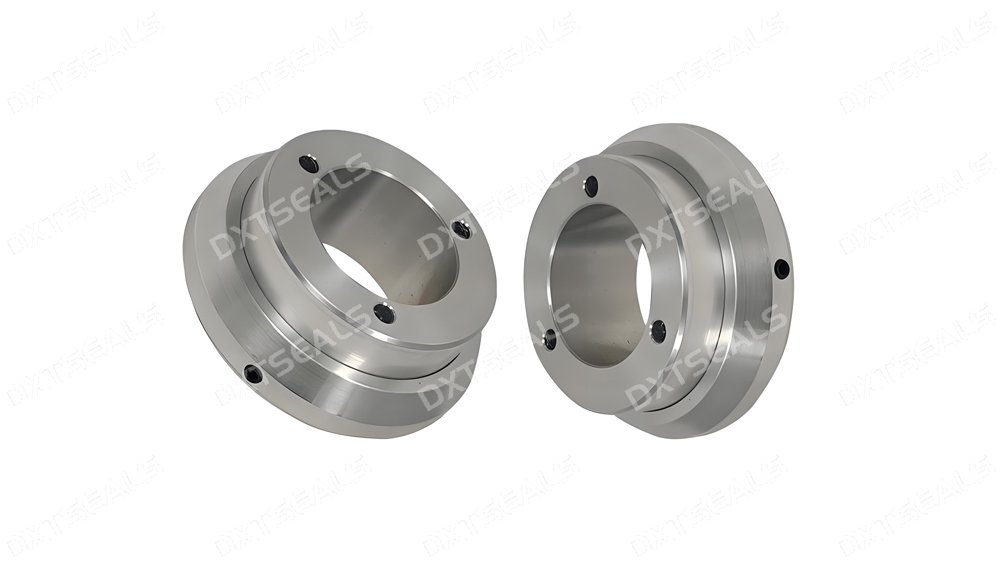
In extreme sealing environments, such as aerospace engines, chemical plants, and power generation systems, sealing components are exposed to intense heat, pressure, and corrosive media. Choosing the right high-temperature metal material is critical to ensuring sealing reliability, durability, and safety.
This article from DXTSEALS compares the performance of stainless steel, nickel-based alloys, and titanium, helping engineers identify the best sealing material for extreme conditions.
1. Why High-Temperature Metal Selection Matters in Sealing Applications
Unlike polymers or elastomers, metals offer superior strength and heat resistance. However, not all metals perform equally in high-temperature or corrosive environments.
The wrong selection may lead to:
-
Seal deformation under thermal stress
-
Oxidation or corrosion at elevated temperatures
-
Reduced service life and unexpected failures
Thus, careful metal comparison is essential before selecting sealing materials.
2. Stainless Steel in High-Temperature Sealing
-
Operating Range: Up to ~600°C (depending on grade)
-
Advantages:
-
Excellent mechanical strength
-
Good oxidation and corrosion resistance (especially 316/310 stainless steels)
-
Widely available and cost-effective
-
-
Limitations:
-
Loses strength above 600°C
-
Not ideal for ultra-high-temperature or highly aggressive chemical environments
-
👉 Best suited for general high-temperature sealing, such as in boilers, exhaust systems, and moderate chemical environments.
3. Nickel-Based Alloys (e.g., Inconel, Hastelloy)
-
Operating Range: Up to 1000°C+
-
Advantages:
-
Outstanding high-temperature strength and creep resistance
-
Exceptional corrosion resistance against acids, salts, and oxidizing environments
-
Stable under thermal cycling (frequent heating and cooling)
-
-
Limitations:
-
Higher material and machining cost
-
Heavier than titanium
-
👉 Ideal for extreme high-temperature sealing, such as turbine engines, chemical reactors, and nuclear applications.
4. Titanium and Titanium Alloys
-
Operating Range: ~500–600°C
-
Advantages:
-
High strength-to-weight ratio (lighter than steel and nickel alloys)
-
Excellent corrosion resistance in marine and chloride-rich environments
-
Suitable for lightweight sealing structures
-
-
Limitations:
-
Lower maximum service temperature compared to nickel alloys
-
More expensive than stainless steel
-
👉 A great choice for aerospace and marine applications, where lightweight design and corrosion resistance are essential.
5. Quick Comparison Table
| Metal | Max Temp Resistance | Strength | Corrosion Resistance | Weight | Cost | Best Applications |
|---|---|---|---|---|---|---|
| Stainless Steel | ~600°C | High | Good | Heavy | Moderate | Boilers, exhaust, moderate heat sealing |
| Nickel Alloys | 1000°C+ | Very High | Excellent | Heavy | High | Turbines, chemical plants, nuclear |
| Titanium | ~500–600°C | Medium-High | Excellent (marine) | Light | High | Aerospace, marine, lightweight sealing |
6. Key Factors to Consider When Selecting High-Temperature Metals
-
Maximum Operating Temperature – Will the seal face sustained or intermittent extreme heat?
-
Corrosion Resistance – Is the environment oxidizing, acidic, or chloride-rich?
-
Weight Requirements – Is lightweight design (e.g., aerospace) a priority?
-
Cost vs Performance – Is the system high-value enough to justify nickel alloy investment?
-
Longevity & Maintenance – How critical is service life and replacement interval?
7. Conclusion: Choosing the Best High-Temperature Metal for Seals
-
Stainless Steel → Cost-effective option for general high-temperature sealing.
-
Nickel Alloys → Best for extreme heat and highly corrosive environments.
-
Titanium → Ideal for lightweight and corrosion-sensitive applications.
At DXTSEALS, we recommend a balanced selection approach, considering temperature, corrosion, weight, and cost, to ensure seals perform reliably in extreme conditions.
📩 Contact DXTSEALS for expert guidance on high-temperature sealing material solutions.
